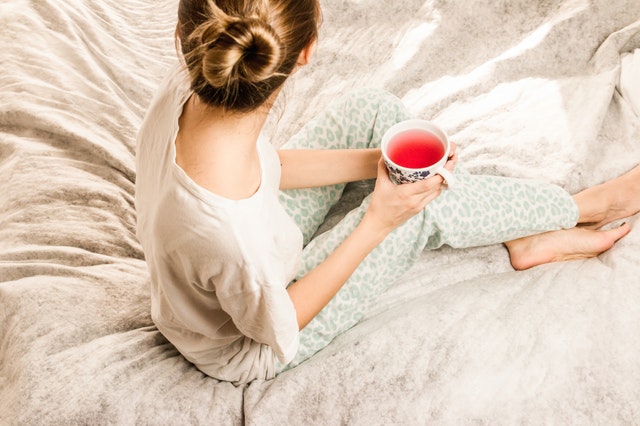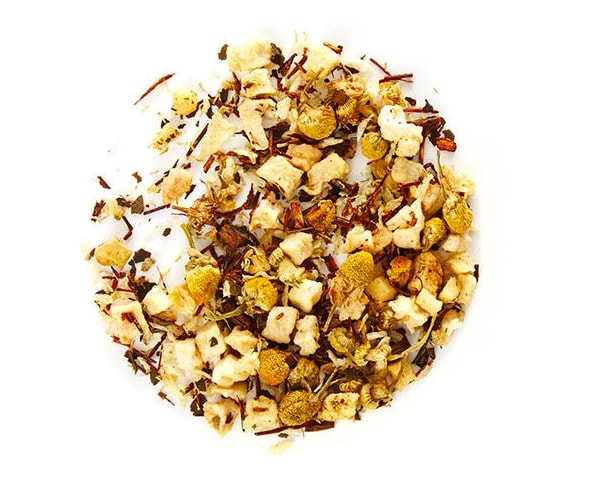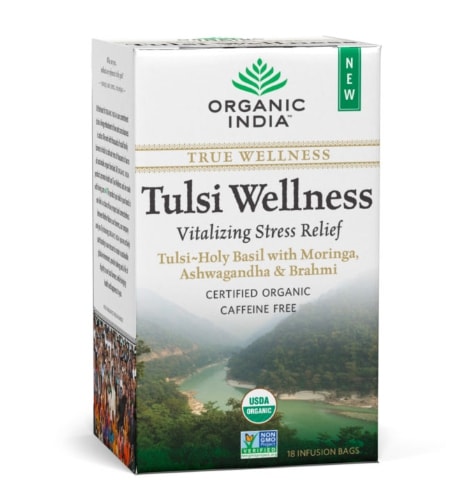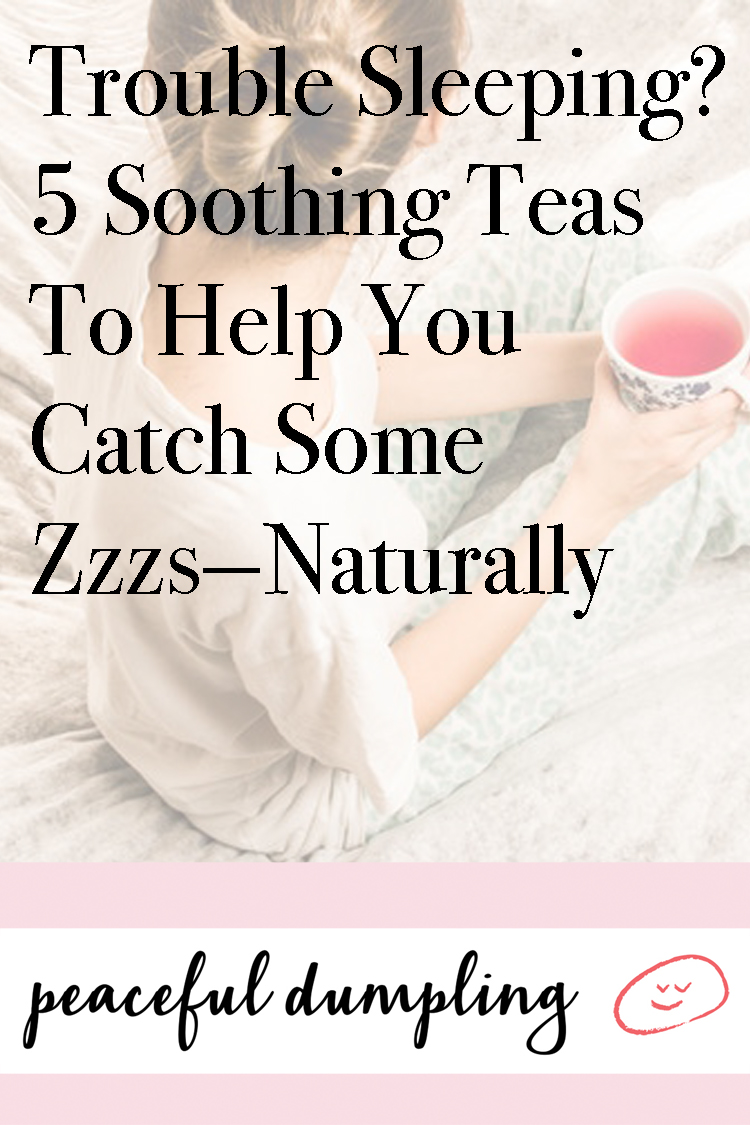You turned off your phone early, you’re wearing your comfiest pajamas, your alarm is set for tomorrow morning, and you’ve had a long day—you’re ready for a good night’s sleep. But once you turn the lights off, you feel like you can’t stop tossing and turning. Maybe you’re stressed about work tomorrow, maybe you’re still thinking about something that happened during the day, or maybe you suddenly find yourself feeling wide awake as soon as your head hits the pillow.

If you feel like you’ve experienced this scenario a little too often, but you don’t want to take sleeping pills, there are some natural sleep aids that could help you get some shut-eye. I tend to have trouble falling asleep, but drinking one of these herbal teas often helps me wind down at the end of the day and relax. Many herbal teas have soothing properties, and studies are confirming what your mom has always known—yes, a mug of chamomile tea before bed really can help calm you down! Here are five teas you can try if you have trouble falling asleep.
5 Soothing Teas for Deep & Dreamy Sleep
Valerian Root

Valerian tea is made from the root of an herb that grows in Europe, Asia, and North Africa. It was traditionally used by the Greeks and Romans for insomnia. Studies show that it can help you fall asleep faster and get better quality sleep. David’s Tea has a tasty loose-leaf variety called Valerian Nights. It’s best to drink valerian tea about 30 minutes before bed, and it works best if used regularly for two to three weeks. If you plan to use it for longer, or you’re taking other medication, talk to your doctor about it. The effects of valerian tea have not been tested on pregnant women or children under 3, so other remedies might be best for these groups.
Ashwagandha

Ashwagandha is known as an “adaptogen,” which means it can have a calming effect when taken over a long period of time because it helps the body adapt to dealing with stress. This herb is a favorite of Ayurvedic practitioners—but does it have any real effects? Studies are now showing that ashwagandha can help with anxiety, so if you’re struggling to fall asleep because of stress and anxious thoughts, it might be a good addition to your bedtime routine. It can be tricky to find pure ashwagandha tea, but Organic India sells a stress relief tea infused with ashwagandha, moringa, and brahmi. It’s best to drink it once per day before bed, and ideally, you shouldn’t need to use it for more than three or four months. Ashwagandha tea hasn’t been tested for pregnant or breastfeeding women, so ask your doctor before drinking.
St. John’s Wort

This flowering herb is native to temperate regions of Europe and Asia, and it’s been used for medicinal purposes for centuries. St. John’s Wort has been shown to relieve stress, which can help you fall asleep, but it can also boost your quality of sleep. Drinking St. John’s Wort tea can prolong your stage of “deep sleep,” which helps you to fully rest and recharge before waking up. Yogi Tea sells a popular St. John’s Wort tea called “Blues Away” that you can find at many health food shops and even some pharmacies. If you know that you’re getting enough sleep, but you still wake up feeling sluggish, this herbal tea could help you feel well rested in the morning. St. John’s Wort may decrease the effectiveness of sedative medications or SSRIs, so if you take either of these, a different tea may be a better choice.
Chamomile

Chamomile tea is a classic bedtime remedy. This herbal tea really does have a calming effect on your nervous system, which can help you fall asleep. How does it work? Chamomile tea is actually loaded with antioxidants that specifically promote sleep and digestive health. So if you end up feeling bloated and uncomfortable at bedtime because you ate a heavy dinner, a warm mug of chamomile can help relieve those feelings to help you sleep easy. But that’s not all—studies have shown that chamomile tea can also help you fall asleep faster and reduce the number of times you wake up during the night. You can easily pick up chamomile tea for just a few dollars at any grocery store. I personally love Traditional Medicinals chamomile!
Lemon Balm

Lemon balm tea can be used as a remedy for anxiety, sleep problems, and general restlessness. However, doctors say that people with diabetes or thyroid problems should avoid it, and it is not wise to drink if you have surgery scheduled in the near future because it can interfere with sedatives. Studies show that lemon balm tea can improve the length and quality of sleep for people with sleep disorders. It also has this effect on people who are otherwise healthy, so whether you’re dealing with insomnia or just feeling extra stressed out, a mug of lemon balm tea before bed might benefit you. Traditional Medicinals also has a soothing variety of lemon balm tea. Research shows that lemon balm tea can safely be used regularly for up to four months, so if you want to use it as a sleep aid for longer, ask your doctor first.

Have you tried any of these sleep-assisting teas?
Also by Jane: Why “Sustainable Seafood” Doesn’t Really Exist–And What To Replace It With
Related: Running On Fumes? 5 Insanely Good Loose Leaf Teas To Give You Life
Is Moringa The New Matcha? Why This Superfood Belongs In Your Smoothies & Tea




